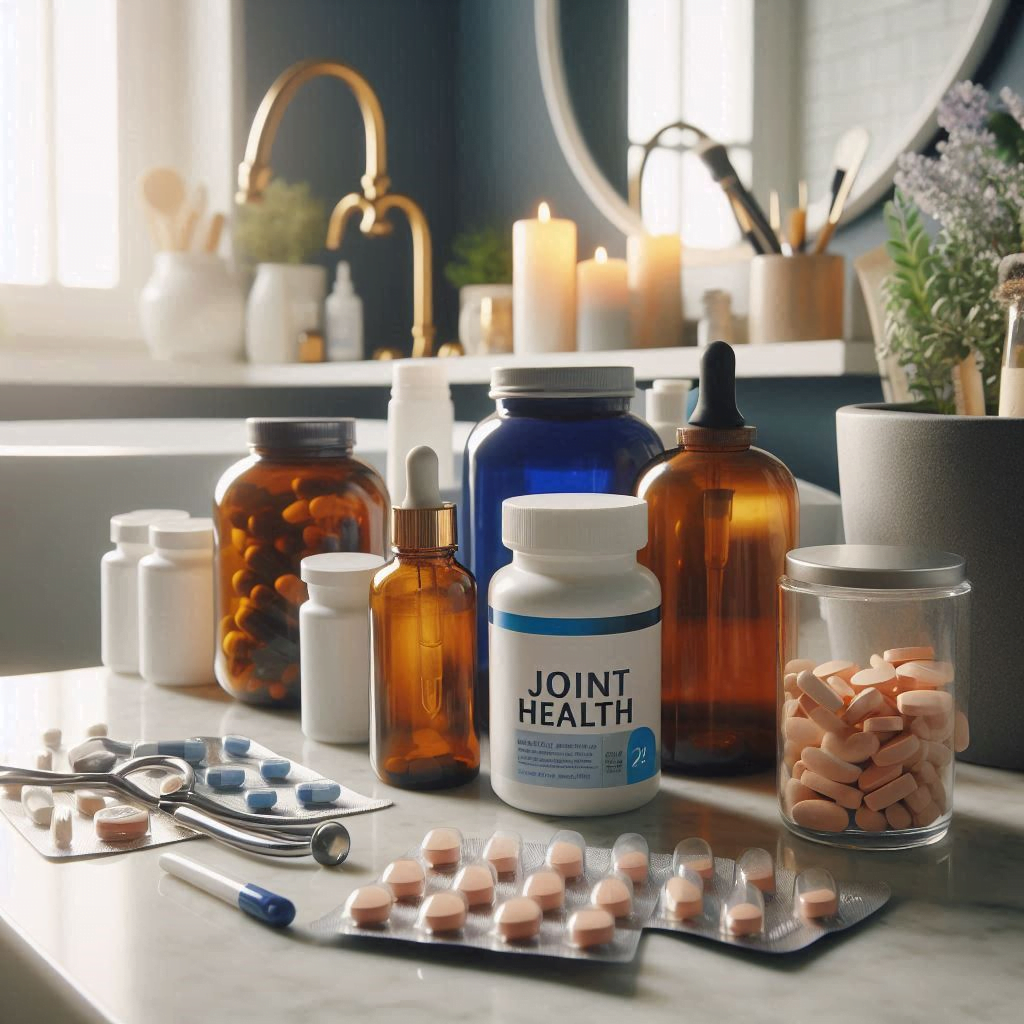If you are living with Crohn’s disease and dealing with Crohn’s joint pain, you are far from alone. The pain can be sharp, dull, stiff, or all of the above, and it often arrives with the timing of a bad punchline. The good news is that there are simple, real‑life ways to ease it, from daily habits to medical options, so you can get back to the bits of life that matter.
Here is the honest bit. Flares can upend your plans, and joint aches can make even small tasks feel big. That is frustrating and tiring. What helps is knowing why it happens and having a clear set of pain management tips for Crohn’s you can actually use. This guide brings together practical ideas and calm, evidence‑aware explanations to help you find steady relief.
Understanding Crohn’s Joint Pain
Inflammation from Crohn’s does not always stay in the gut. It can affect the joints too, which is why many people notice ibd joint pain alongside bowel symptoms. This is sometimes called arthritis and Crohn’s disease, and it can show up as joint stiffness, swelling, or aches that move around.
- Systemic inflammation: Crohn’s can trigger immune messengers that raise inflammation body‑wide. When that inflammation reaches your joints, they can feel hot, puffy, and sore. This is one reason Crohn’s arthritis symptoms often track your gut activity.
- Gut microbiome and joints: An imbalanced gut microbiome can send the wrong signals to the immune system, which may spill over to the joints. That is the gut joint connection in action.
How Inflammation Contributes to Joint Pain in Crohn’s
Systemic Inflammation and the Messengers of Mayhem
Crohns disease can activate the production of signals, in the body. These signals, known as cytokines act as triggers that prompt the system to respond. Regrettably there are instances where these triggers are activated without a threat resulting in inflammation in normal tissues such, as our joints.1.
In short, that is systemic inflammation and cytokines doing their unhelpful thing. The result can be Crohn’s joint pain that comes and goes, sometimes with a flare up and sometimes on its own.
The Gut Joint Connection A Two Way Street
The diverse population of bacteria living in our system, known as the gut microbiome doesn’t just aid in digestion. Also impacts our overall well being. Studies indicate a connection, between a gut microbiome in individuals with Crohns disease and inflammation in the joints. When there are disruptions in the balance of the gut microbiome it could lead to the release of substances, into the blood, which may result in inflammation spreading to the joints.2.
Impact of Gastrointestinal Issues on Joint Health
Gut inflammation can change how your immune system behaves, which can affect joint health. Two common explanations people ask about are below.
- Leaky gut: Inflammation, in the gut lining a characteristic of Crohns disease could result in permeability. This may allow digested food particles and bacteria to pass into the bloodstream potentially triggering an inflammatory reaction that impacts the joints.3.
- Immune misfires: When your immune system is busy tackling gut inflammation, it can sometimes mistake joint tissue for an enemy. That confusion can lead to tenderness, swelling, and joint stiffness during a flare up.
What Does Crohn’s Joint Pain Feel Like
It varies and that is normal. You might notice some of the following at different times.
- Pain in large joints like the knees and hips, sometimes called Crohn’s knee pain or Crohn’s hip pain.
- Aches in the back or shoulders, plus Crohn’s muscle pain after activity or rest.
- Morning stiffness that eases with gentle movement.
- Pain that worsens around a gut flare up, or occasionally when bowel symptoms are quiet.
- Patterns that change over time, for example Crohn’s arthritis symptoms that move from one joint to another.
Managing Joint Symptoms in Crohn’s Disease
There is no single fix, and that is okay. Think small, consistent changes. The aim is Crohn’s joint pain relief that fits your day and supports long‑term joint health.
Physical Activity and Joint Health
Moving Matters Why Gentle Exercise Is Your Ally
When everything aches, exercise can sound unappealing. Yet regular, low‑impact movement keeps joints mobile, strengthens supporting muscles, and can lower inflammation over time.
Simple options to try:
- Swimming: Water supports your weight so joints take less impact.
- Yoga or Pilates: Builds flexibility, core strength, and balance.
- Walking: A daily walk counts, even in short bursts.
Work within your limits and pace yourself. If in doubt, speak to a physiotherapist, or ask about physical therapy for joints through your GP.
Quick add ons that help many people, pacing activity through the day, using heat or cold packs, and short stretch breaks to ease stiffness.

Effective Medication Options for Crohn’s Related Joint Pain
Medication can be part of Crohn’s joint pain treatment. Speak with your IBD team about the options below and how they fit with your gut symptoms.
- Nonsteroidal anti inflammatory drugs (NSAIDs): These can reduce pain and swelling, but some NSAIDs may aggravate Crohn’s. Always check with your clinician first.
- Corticosteroids: Useful for short bursts during flares. Corticosteroids for joint pain are effective, yet longer courses carry side effects.
- DMARDs: Disease‑modifying anti‑rheumatic drugs calm the immune response. They can take weeks to work.
- Biologics: Target specific inflammation pathways. Many people use biologics for Crohn’s joint pain and bowel control together.
Plans are personalised. If you hear terms like Crohn’s arthritis treatment, ask how that links to your gut plan too.
Nutritional Strategies for Joint Health in Crohn’s Disease
Food will not fix everything, but the right patterns can help. Many people find an anti-inflammatory diet for joints supports overall comfort while keeping energy steady.
- Add more anti inflammatory foods: Colourful fruit and veg, whole grains that you tolerate, olive oil, nuts, and oily fish rich in omega‑3s.
- Cut back on drivers of inflammation: Fewer ultra‑processed foods, refined sugars, and processed meats can help some people.
- Stay hydrated: Dehydration can make aches feel worse. Keep water nearby.
Considering supplements: Discuss options with your care team first. Omega‑3s may help some, and glucosamine and chondroitin have mixed evidence. Do not add or combine supplements without personalised advice.

FAQs Living With Crohn’s And Joint Pain
Usually no. Gentle activity like swimming or walking can ease stiffness and pain. Stop or switch if it hurts and get personalised advice.
Pain that tracks a flare, moves between joints, or comes with fatigue and gut symptoms may be related. Speak to your clinician.
There is no cure, but symptoms can be managed well. Treatment often mixes medicines, movement, and daily strategies.
It can. Systemic inflammation and gut microbiome changes are common reasons. Your team can confirm what is driving yours.
Try gentle movement, pacing, and heat or cold packs. Ask about medicines or physiotherapy if pain limits you.
If pain is new, severe, or persistent, get medical advice. Sudden swelling, redness, or fever needs prompt review.
Conclusion
You deserve care that respects your reality. With a better grasp of the causes, small daily habits, and the right medical support, Crohn’s joint pain becomes something you manage, not something that manages you.
Additional Resources
- Crohn’s and Colitis UK https://crohnsandcolitis.org.uk/
- National Institute of Arthritis and Musculoskeletal and Skin Diseases (NIAMS) Information about Inflammatory Bowel Disease (IBD) https://www.ncbi.nlm.nih.gov/books/NBK436021/
- Arthritis Foundation Arthritis & Inflammatory Bowel Disease https://www.crohnscolitisfoundation.org/emr/emr-ibd-education-tool/arthritis
Remember: This blog post is intended for informational purposes only and should not be construed as medical advice. Always consult with your doctor to discuss your individual situation and determine the best course of treatment for you. Do not start or stop medications without speaking to a doctor. Do not change your diet without speaking to your doctor or a healthcare professional.
- National Institutes of Health (.gov): Cytokines https://my.clevelandclinic.org/health/body/24585-cytokines ↩︎
- Crohn’s & Colitis Foundation: What is the Microbiome? https://gut.bmj.com/content/66/5/813 ↩︎
- National Institutes of Health (.gov): Leaky Gut Syndrome https://www.ncbi.nlm.nih.gov/pmc/articles/PMC6790068/ ↩︎





